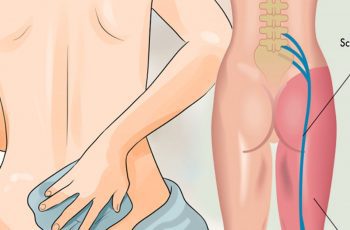Hospitals are intimidating for any of us: the stark white décor, the smells, the alarms, and the constant intrusion by medical personnel. But for those headed down life’s final path, those factors must be doubly frightening. Now, a new hospital program to help ease the fear of death is helping some hospice patients leave this world a little more gently.
It’s staggering to realize that millions of Americans will die alone in a hospital bed, often with no relatives or friends at their sides in their final moments. But those who care for patients know better than anyone else that the simple gesture of human touch is critical for those at this time of life.
Rebecca Hixson, a registered nurse at Tennessee’s Vanderbilt Medical Center in Nashville, is all too familiar with the issues, seeing it as she does day after day.
“It’s amazing how much just having someone hold a hand makes a difference,” Hixson says.
It’s becoming an increasing issue as we all live longer, and that means a segment of the population will always be the last of their crew to survive. With families often living thousands of miles apart, it’s not always possible for relatives to be by a senior’s bedside in their final days, either.
For all of us, it’s an understandable fear: we simply don’t want to have anyone who cares with us when we take our last breaths. So, hospitals like Vanderbilt are more and more offering the simple option of having a volunteer come and sit with patients. Just having someone there seems to calm and comfort most people, Hixson says.
Think this will never be you? Well, think again. According to the latest Census, more than 18 million US citizens will hit 65 and up all by themselves. Further, the American Psychological Association notes a staggering 75 percent of us will end our days in either long-term care or inside of a hospital.
Dr. Mohana Karlekar, who directs the palliative care unit at Vanderbilt, says that more and more, patients have no one “… to advocate for them, or simply be with them in the hospital when the time comes.” And if the goal of hospice care at the end of life is to ease the pain, part of that has to come from looking out for the needs of our emotional hearts, not only of our physical ones.
The program concept was created in Oregon. Dubbed “No One Dies Alone,” it means just that, and it’s now catching on at other care centers nationwide. Obviously, not just anyone can take on this task, and volunteers for the program are rigorously screened to make sure they have what it takes to be that final calming presence for a stranger.
And it’s not just seniors who often need that helping hand: those who experience trauma can often need the same help, regardless of age. Those working in hospitals with trauma centers, which are often regional, know this situation all too well.
Hixson notes that having a Level One trauma center, which Vanderbilt does, brings in all kinds of folks. “People are often flown in from rural areas, from places where their family members — if they have family members — have no way to get to them once they come to us. Their support system just isn’t there,” she said.
She adds that the goal of the “No One Dies Alone” program is to “help make someone’s final moments as meaningful as possible.”
Among the volunteers at Vanderbilt is native Tennessean Todd Havens. He fit the profile for this type of work perfectly, having worked previously as a first-aid trainer and a volunteer fireman to boot. On top of which, Havens’ day job is as VP of the internal audit program for the hospital.
He sees his volunteer work as just as important as his paying job, though. “I work here, and I know I’m supporting an organization whose mission is to care for our community,” Havens said. He likes to read, say prayers, or play calming music for patients while he sits with them, he added.
Vanderbilt’s program is still relatively small, encompassing just 25 volunteers, but the hospital hopes it can soon add the same program to its intensive care unit. In its first six months, 15 patients didn’t have to die alone, thanks to this compassionate concept that we can only hope will continue to expand nationwide.
If you know someone who might like this, please click “Share!”

